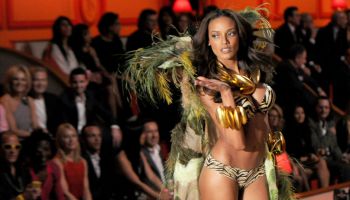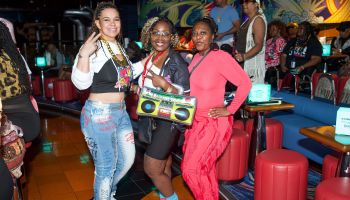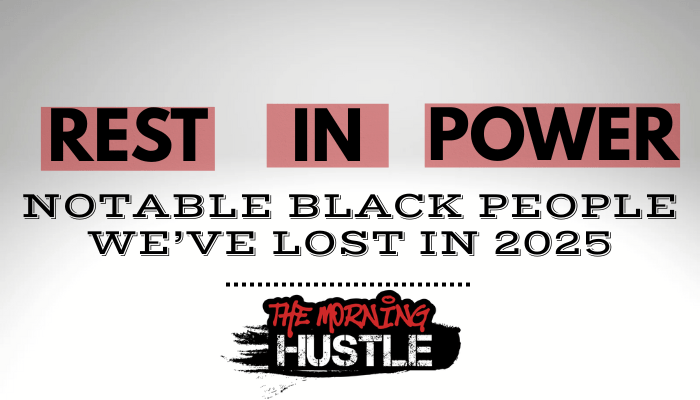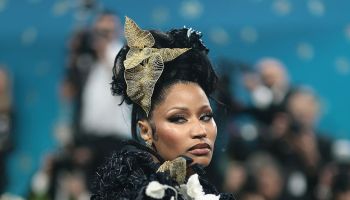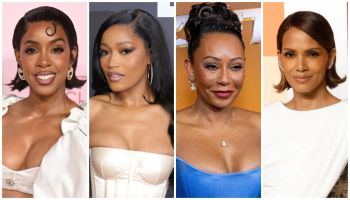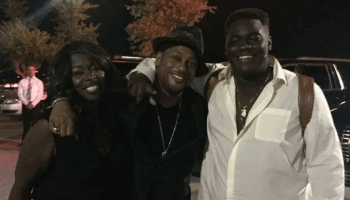'Black In White' Portrait Series: Rashad Robinson
‘Black In White’ Portrait Series: Rashad Robinson Is On The Frontlines At The Intersection Of Racial Justice And Democracy
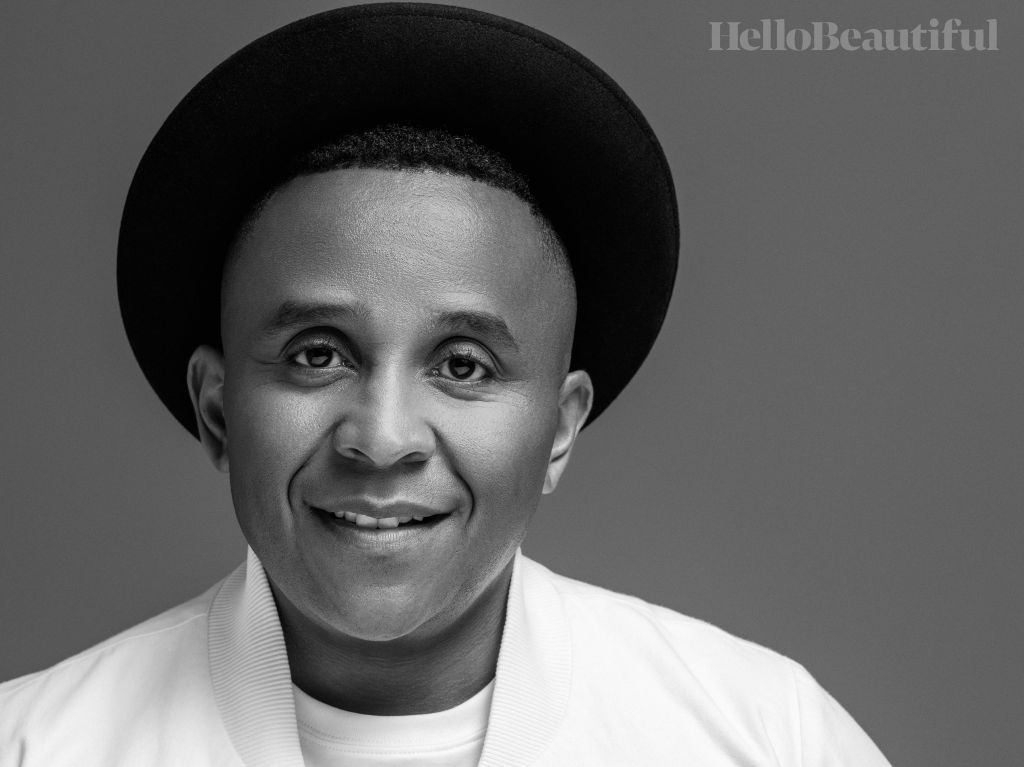
‘Black In White’ is a new editorial series from iOne Digital that celebrates the wholeness of our beauty — our skin, our culture and our roots — by celebrating it in the simplest of styles. The color white has a long and storied history in Black cultural expression. From spiritual ceremonies to all-white parties, no one does it like us when it comes to bringing so much color to a look without it. Join us as we shut out the noise of overloaded digital spaces, high concepts and heavy retouching, and take it back to the basics for real and unfiltered storytelling.
In a world on fire, Rashad Robinson exudes a calm and direct demeanor. With over two decades as an organizer at the intersection of racial justice and democracy, the nationally recognized thought leader and strategist continues to find a way to break through the noisy landscape. A widely consulted advocate and strategist, Robinson has played a critical role in transforming corporate accountability, media and tech. He is a culture changer and narrative shifter in criminal justice world.
Over the course of his career, Robinson has remained committed to building integrated strategies driven by a commitment to overcoming divisive forces that stand in our way of building a brighter future for the many. While best known for his work at Color of Change, Robinson has worked across several national organizations including as the National Field Director at FairVote, an organization advocating for electoral reform, and as the Senior Director of Media Programs at GLAAD. In 2011, he joined Color of Change as executive director and president where he bridged the divide between organizing, digital, and narrative strategy.
During his tenure at Color of Change, Robinson developed a reputation for holding corporate and government leadership accountable and curating stories representing the voices of the most marginalized in our country. He co-led boycotts, narrative shift campaigns, and culture strategy to drive change in the furtherance of progressive issues and causes. Before the country was up in arms about Project 2025, Robinson was a part of driving a national campaign against the right wing American Legislative Exchange Council (ALEC). Through his leadership, Color of Change successfully pushed over 100 companies to end their
After transitioning from his role at Color of Change in late 2024, Robinson formed Rashad Robinson Advisors, continuing his groundbreaking work around culture and narrative change. He also set up a Narrative Power hub focusing on strategies and resources for building narrative power and creating content for culture shifts.
In a candid chat, Robinson revealed a depth beyond his resume, showing a reflective person deeply concerned about how we move beyond the political strife of the moment. Even in moments of simple reflection, he remained the forever strategist grounded in a sense of purpose and community. Our chat offered a rare opportunity to know a little more about Rashad Robinson the person, not the national thought leader.
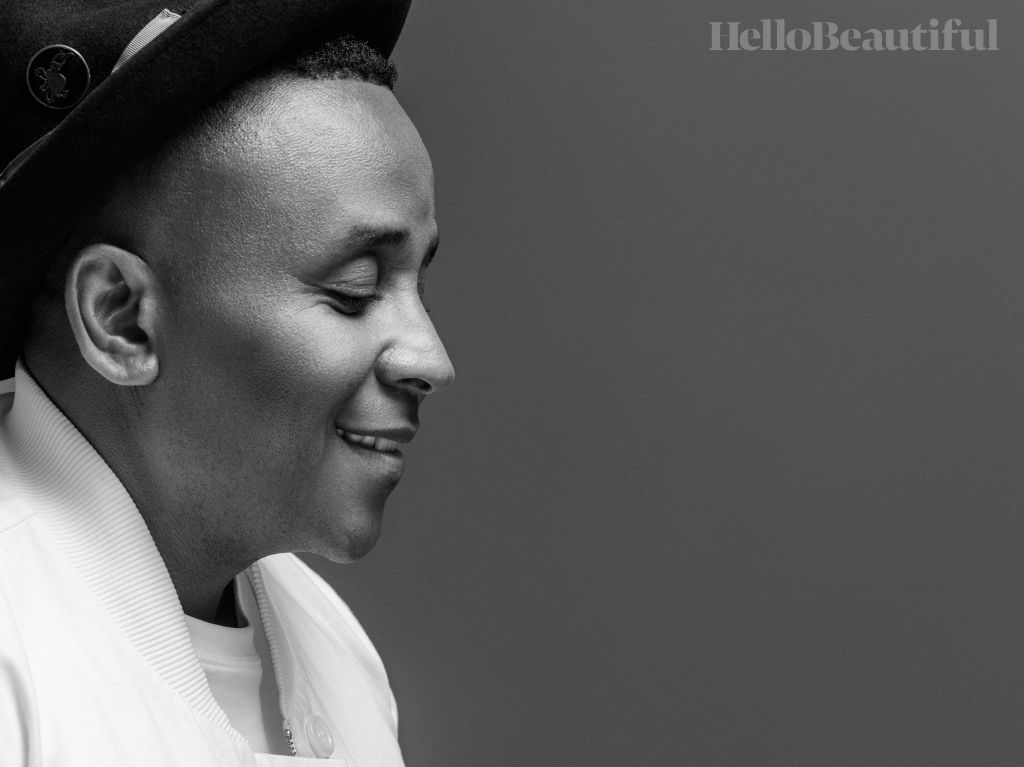
HelloBeautiful: With the portrait series we’re trying to go beyond the prepared interviews and remarks, and see the person looking back at us. So let me ask you, when do you feel most vulnerable? Or what is something that puts you in that space of vulnerability?
Rashad Robinson: That’s a great question. What makes me feel vulnerable? I like to be prepared. And I feel like when there are times where I’m caught off guard or not prepared, or don’t have the sort of information that I need, that there’s like a level of vulnerability to that.
HB: When do you feel the most free?
RR: For me, this summer felt very free. Even in the midst of so much of the pain–so much of the sort of attacks on our people–the outside, the weather, family, good food. There was a level of comfort. But every day, you know, I work to recognize that like freedom is a practice. It is not an ending point. It is not a destination. It’s an ongoing sort of process of work. And so it’s not that I feel more or less free in any given situation. It’s oftentimes that different situations can open up themselves to new opportunities.
HB: I love that. And then what do you hold most sacred?
RR: You know, sacred is such a strong word. It’s such a strong word that I don’t know if I really hold things sacred, as much as that I do feel. And perhaps maybe the thing I hold sacred is the ability to wrestle with my assumptions. To wrestle with the things my opinions, to wrestle with what I was taught and what I learned. To wrestle with the things that people believe around us, and to be constantly interrogate those things. And so the ability to interrogate, the ability to change my mind, the ability to–if I’m in the work of getting other people to shift and change their minds–of moving people in a different direction. I think the thing I hold most sacred is my ability to do that for myself as well.
HB: Appreciate that. And then just thinking about this could also be difficult, but how do you define yourself? Like, if you had to define yourself or explain yourself to someone else, how would you go about doing that?
RR: I feel like I’m you know, a person who’s full of hope, full of a belief in possibility. I am a person who, you know, has a lot of courage. Right? And I don’t say that lightly. I say that like the world is not, was not designed for me, right? Everything from being Black and gay to being 5’3”, right? You go in the stores and the clothes are not made for you. Like the world is not designed for me. And so whether it is the work that I do to kind of make our society more open and more just and more fair for more of us, it does come from a sense that we have to make our way. And I’m a person who is in the practice of what I preach.
HB: I’m going to pivot and ask you another question based on something you were saying earlier about comfort in others around you. There’s a lot of conversation right now about community connection and belonging, right? How important are those things for you personally? But also as we’re navigating this really challenging point in the country?
RR: Yeah, I mean, I think community, connection and belonging are important, but they’re important for me in so much that they are sort of ways of coming together to accomplish something, to move us forward. You can be in community, connection, and belonging while the Titanic is going down. And that’s not the kind of community, connection, and belonging that I want. I want a community connection and belonging that allows us to win, that gives us the ability to be able to bring about more justice and more freedom and more opportunity and more hope. And so it’s not community, connection, and belonging for the sake of community connection and belonging. It is community, connection, and belonging in service of us winning more things–making society actually operate on our side.
- From Gospel to Hip-Hop: Day 2 of the Tom Joyner Fantastic Voyage 2025
- Chauncey Billups, Terry Rozier Among Several Charged In Large FBI Gambling Probe
- 10 Sexiest Black Victoria’s Secret Angels Over The Years
- Love Shouldn’t Hurt— 12 Stars Who Survived Domestic Violence And Spoke Their Truth
- 70s vs 90s Theme Night Highlights Day 3 of the Fantastic Voyage
‘Black In White’ Portrait Series: Rashad Robinson Is On The Frontlines At The Intersection Of Racial Justice And Democracy was originally published on hellobeautiful.com





